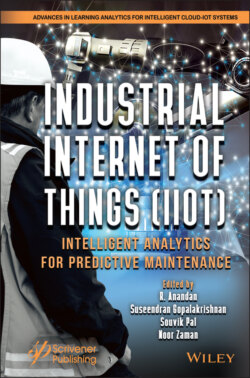Читать книгу Industrial Internet of Things (IIoT) - Группа авторов - Страница 20
1.4 Discussion
ОглавлениеThe application of AI in the industry has been increasingly optimizing its results, in an attempt to reach its maximum degree of efficiency. AI advent is the arrangement of several technologies, which allow machines digitally to perceive, understand, act, and learn on their own actions or complement human activities, which has become a broad technology used for machine learning, predictive analytics, augmented reality, robotics, performance diagnostic software, and many others.
With entire procedures performed by machines capable of making decisions based on data, agility and increased productivity are natural consequences. Through AI, industrial production has become faster and more effective compared to human labor. Still considering the possibility of the machines performing tasks that a person would not be able to do, as is the case with dangerous raw materials or microscopic components.
AI works through the integration of factors such as the use of IoT sensors, Cloud Computing, and other technologies present in Industry 4.0, working in sync, devices equipped with AI create complex systems, which correlate the information collected and, with this, seek the best ways to carry out the activities for which they were scheduled. These new technologies are developed to work using the least amount of resources possible, whether in terms of raw material or energy consumption, still relating the point of cost reduction, the mitigation of errors, and waste of the operation.
When addressing AI applications, it is worth mentioning IIoT as a critical technological layer added to the production chain, which allows even the connection with suppliers and the analysis of the performance of its raw materials, still pondering the potential of AI in relation to security alerts, which point to the need for maintenance and performance reports in real time, indicating the best measures to be taken.
Still pondering the aspect in which machines can withstand extreme conditions that would be harmful even if perceived only in the long term for the health of the employees of industry, such as cooling cameras, chemical processes, and management of explosive materials, among others, that can be carried out almost entirely through automation.
The aspects in Industry 4.0 in relation to the digitization processes that guarantee the collection of data that were previously lost, the mitigation of risks in decision making, the optimization of operations, and the gain of agility, among others, are also mentioned. The implementation of complex AI algorithms has been enabling industries to assess and enable problem-solving and decision-making in a more complex and secure way.
Assessing that each sector of the industry receives contributions from AI in a different way, as a logistics and inventory structure can benefit from technology for identification and control of demand, for example; or industries with production chains that have different machinery, as is the case with the automotive industry, since with the use of predictive analysis, they can identify the need for maintenance on their machines.
The benefits are not the only ones since the industry receives an extremely positive impact on the use of AI in its processes. Given that it is possible to point out an increase in the quality of products and services, since AI reduces execution errors and subsequently uses operation data to analyze performance and make improvements; or even more effective new products and services, since the development can also be supported by AI to evaluate the proposed designs, identifying the material variables, the weaknesses to be improved, and the possibility of using augmented reality to make tests before actually putting it into production; or even through data analysis, it is possible to get an agile response to new market demands, considering that the needs and interests of consumers are changing with great velocity.
AI brings great advantages to the industry related to the reduction of errors, because after being trained, intelligent algorithms are able to perform very well tasks that are susceptible to errors in processes executed by humans. The reduction of costs since e-commerce stores or banks use robots (chatbot) for customer service, this allows employees to be allocated in more strategic areas, which can increase profit. So, with fewer errors and employees focused on more important processes, the company will have more time to think about the business and leave other tasks to AI.
Thus, AI through an automated process uses large volumes of data to make decisions, dispensing with human intervention and increasing productivity in different activities.
